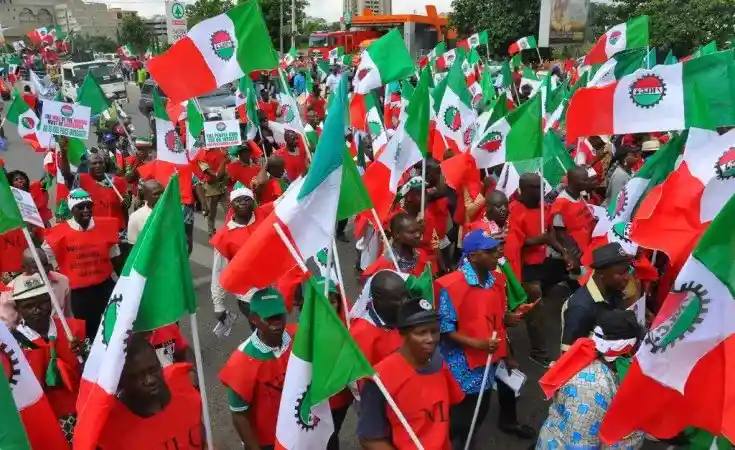Tinubu Sends Invitation to NLC, TUC Over New Minimum Wage, Details Emerge
Abuja, Nigeria—President Bola Tinubu invited the Labour leaders for a meeting to discuss a new minimum wage for Nigerian workers. The date is Thursday, July 11, at the Presidential Villa in Aso Rock, where the president is expected to make a decisive announcement on the proposed wage.
This comes after Tinubu, in his Democracy Day speech, pledged that his administration would, in a short time, forward an “executive bill on the new minimum wage to the National Assembly.” The current minimum wage—at ₦30,000, as provided by the Minimum Wage Act of 2019—expired in April 2024.
Read Also : No Going Back On N250,000 Minimum Wage – TUC Insists
The government and Organised Private Sector have proposed a new minimum wage of N62,000. However, Organised Labour said the amount should rather go all the way up to N250,000 with a view to the current presiding inflationary pressure, and there are living standards enthroned by the removal of the petrol subsidy and unification of the forex. This coming parley represents a very critical step in this negotiation process.
Read Also : Young Jonn Flaunts Photos With Davido’s Cousin Amid Relationship Rumours
The Federal Executive Council had to postpone deliberations on the new minimum wage memo to June 25, 2024, for further stakeholder engagements. labour embarked on an indefinite strike on June 3, 2024, which paralysed many sectors, including airports, hospitals, and even banks. The president assured of a wage above ₦60,000, and labour called off its strike on June 4, 2024, while resuming talks between labour leaders, government, and private sector representatives.
Upon resumption into office, President Tinubu set up a Tripartite Committee, comprising representatives of labour, government and the private sector in January 2024 to negotiate a new minimum wage but the committee is yet to arrive at an agreement, which led to the current stalemate.
Reps Deny Asking Tinubu Govt To Suspend Implementation Of Samao Agreement
Opinions on the matter have rather been polar and mixed among legal experts and other stakeholders. According to Legit.ng, a lawyer named Okanlawon Gaffar said that all states would find it very hard to pay a uniform minimum wage; instead, every state should pay what will be convenient for it, depending on its financial standing and internally generated revenue.
As the decision taken at that meeting later today should, perhaps, be drastically awaited by the country, the decision on the new minimum wage will have far-reaching implications for both Nigerian workers and the economy at large. The negotiations are rather a very strategic step toward assenting to the needs of the worker and guaranteeing sustainable economic growth amidst the current effects of downturn in the economy.

